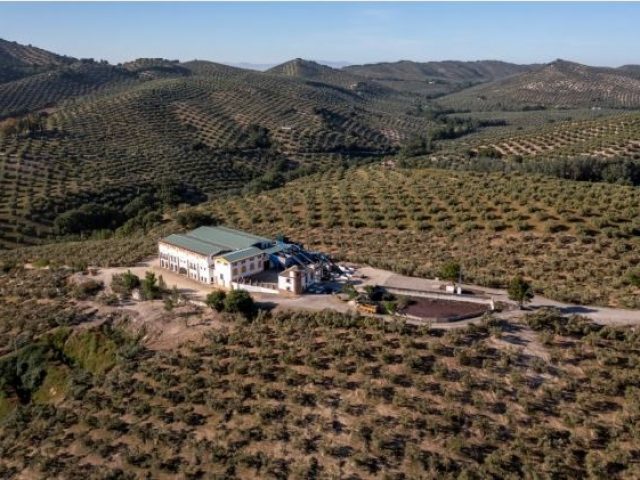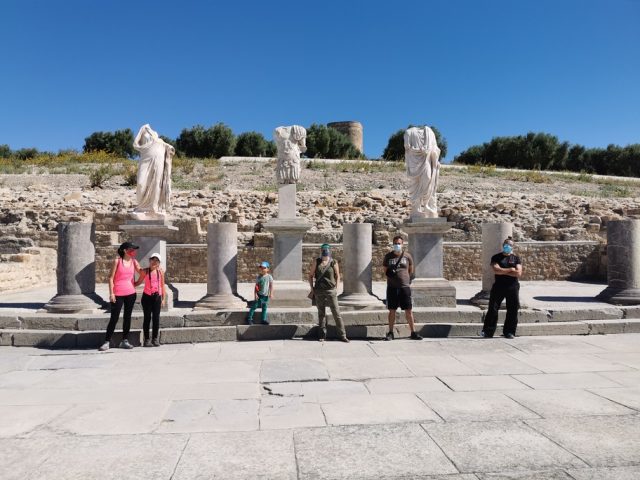Cookies
The main obligations with regard to cookies are established below, including: information for users about the type of cookies used by the website, the purpose of these cookies, user consent, how consent is requested, legal notice, cookies policy, etc.
1. Description of cookies
Cookies are files that are stored on a user’s computer when they browse the Internet. They contain a number that is used to uniquely identify the user’s computer, even if they change location or IP address.
Cookies are installed during Internet browsing, either by the websites that the user visits or by third parties related to the website. They inform the website about user activity on this website or on others that are related to it, for example: the access point, connection time, device used (fixed or mobile), operating system, browser, most visited pages, number of clicks and data related to the user’s behaviour on the Internet.
The website can be accessed without cookies being activated; however, switching them off may prevent the website from operating correctly.
2. Types of cookies
2.1. Types of cookies
Cookies can be classified according to the company that manages them, the time they remain activated on the terminal equipment and their purpose.
The main obligation for companies or information society service or Internet providers with regard to websites, platforms or IT applications, is established by article 22.2 of the Law on the Information Society and E-Commerce Services:
“Service providers may use storage and data recovery devices on user terminal equipment provided that the user has given their consent after having been provided with clear, full information regarding their use, specifically, the purposes of data processing, in accordance with Organic Law 15/1999 of 13 December on Personal Data Protection.”
Furthermore, cookies used for the following purposes are exempt from complying with the obligations established in article 22.2 of the Law on the Information Society and E-Commerce Services:
To solely permit communication between the user’s equipment and the network;
To exclusively provide a service expressly requested by the user.
Similarly, cookies with the following purposes are exempt from the obligations established in article 22.2:
User entry cookies;
User authentication or identification cookies (session only);
User security cookies (mistaken and repeated connection attempts);
Multimedia player session cookies;
Load balancing session cookies;
User interface customisation cookies;
Add-on cookies to exchange social media content.
These cookies are not within the scope of article 22.2 of the Law on the Information Society and E-Commerce and therefore it shall not be necessary to inform users or obtain their consent for their use. However, it shall be necessary to inform users and obtain their consent for the installation and use of any other type of cookies (own or third party, session, persistent) as they are subject to article 22.2 of the Law on the Information Society and E-Commerce and the guidelines stated in this document will be useful for their application.
Depending on the company managing them, cookies may be:
Own cookies: cookies sent to the user’s terminal equipment from equipment or a domain managed by the editor, where the service requested by the user is located.
Third party cookies: cookies that are sent to the user’s terminal equipment from equipment or a domain that is not managed by the editor but by another entity that processes the data obtained from cookies.
Cookies can be classified depending on the length of time they remain active on the terminal equipment:
Session cookies: cookies designed to gather and store data while the user accesses a website.
Persistent cookies: cookies that keep data stored on the terminal that can be accessed and processed for a period of time set by the cookie manager (this can be from one minute to several years).
Cookies can also be defined according to their purpose:
Technical cookies: cookies that allow the user to browse a website or access a platform or application and use its different options or services, for example, control traffic and data communication, identify the session, access restricted areas, record data in an order, complete the purchasing process from an order, complete registration requests or register event participation, apply security features during browsing, store content for distributing videos and audio files or sharing content on social media networks.
Customised cookies: cookies that allow the user to access the service and that have some general, pre-established characteristics depending on a series of criteria on the user’s terminal, for example, language, the type of browser used to access the service, regional configuration at the location where the service is accessed, etc.
Analysis cookies: cookies that allow the cookie manager to monitor and analyse user behaviour on the websites where the cookies are found. The information gathered by this type of cookie is used to measure activity on websites, applications and platforms and to create user browsing profiles for these websites, applications and platforms with the aim of making improvements following a data analysis that reveals how users use the service.
Advertising cookies: cookies that are used for the most effective management possible of advertising space, included by the editor, if applicable, on a website, application or platform that provides the requested service based on criteria such as the content that is published and how often the adverts are shown.
Behavioural advertising cookies: cookies that are used for the most effective management possible of advertising space included by the editor, if applicable, on a website, application or platform that provides the requested service. These cookies store information about user behaviour that is obtained by continuously observing their browsing habits; this information is used to develop a specific profile so that targeted advertising can be shown.
2.2. Types of cookies used on the website
This website, belonging to ENTIDAD ASOCIACION PARA EL DESARROLLO TURISTICO DE LA RUTA “CAMINOS DE PASION” uses the following cookies:
Third party cookies to obtain visitor statistics using the Google Analytics tool.
Own cookies for managing caches and improving users’ browsing experience.
3. Information about legal obligations when using cookies
The legal obligations established by the applicable regulations are: the duty of disclosure and the obligation to obtain consent.
Any cookies that will be installed or used must be identified and they should be analysed to determine whether they are own, third party, session or permanent cookies. Their function must be determined to decide whether or not they fall within the scope of article 22.2.
The second section of article 22 of the Law on the Information Society and E-Commerce establishes that users must be provided with clear and full information about the use of storage and data gathering devices and, specifically, the purposes of data processing, in accordance with Organic Law 15/1999 of 13 December on Personal Data Protection.
Therefore, the information given about cookies when consent is requested must be sufficiently thorough to ensure that users can understand why they are being installed and what they are used for.
In the event that a user gives their consent to the use of cookies, information about how to withdraw consent and delete cookies must be easily accessible and permanently available.
This compulsory information should be offered for several different systems. As shall be seen below, in general, consent to install the devices is requested from users when providing the necessary information. The most common methods for providing the information are:
a clearly visible bar at the head or foot of the page;
including the information within the privacy policy or in the terms and conditions applicable to using the service when a user requests permission to register with a service, or before a service or application is downloaded.
Information about how to deactivate or delete cookies and how to withdraw previously granted consent should also be provided in the instructions given by the editor.
4. Authorising the use of cookies
In accordance with the cookies notice that is published on the website, users of or visitors to the website accept that by browsing these pages, they expressly agree to the use of cookies as described below, unless their browser configuration has been modified to reject the use of cookies.
5. Browser configuration
The Owner reminds users that they may need to accept the use of cookies when installing or updating the browser that they use.
Acceptance may be withdrawn by modifying browser content and privacy configuration options. The Owner recommends that users check their browser’s help menu or visit the help websites of the main browsers:
Firefox: https://support.mozilla.org/en-US/kb/cookies-information-websites-store-…
Chrome: https://support.google.com/chrome/answer/95647?hl=en
Safari: http://support.apple.com/kb/ph5042
Explorer: http://windows.microsoft.com/en-us/windows7/how-to-manage-cookies-in-int…
If users would like to ask any questions about the Website Cookie Policy, they can contact the Owner at the following address: info@caminosdepasion.com, entering “Cookies Policy” as the email subject.









